Tipping the scales: How recognition is supporting workforces and increasing retention during economic hardship
This post-UNLEASH World roundtable expands on the important topic of employee recognition, pinpointing how employers can strategize here building on a topic that was a key theme at the Paris conference.
Why You Should Care
An uncertain economic and talent outlook means employers have to pull out all the stops to attract, engage and retain talent — moving beyond traditional models.
Here, recognition is important but HR has to recognize both blockers to it, the guiding context around it, and what different options exist.
Work, at least as employees see it, should become more human. In fact, as a result of burnout, isolation, and mounting economic pressures, many in the workforce are expecting more from their employers. They expected to have employers deliver on their values, reward them, and recognize them, too — in ways that make sense for the business values, culture, and goals and themselves as individuals.
Fortunately, many employers are shifting their attention to wellbeing, recognition, and reward, understanding that focusing solely on traditional compensation, as a way to attract and retain talent, no longer cuts it. As such, this Road from Paris roundtable discussion focuses on the different ways in which employers are building recognition strategies, looking at both the why and the what, contextualizing it within the broader economic and talent outlook.
Making recognition more than a nice-to-have is hard…
The discussion kicked off with one attendee positing what it is that could make employees feel more noticed and valued through human-centric recognition and development practices at work. This, decided attendees, was crucial to do because of some of the challenges HR is currently dealing with, including: pandemic shifts to employee expectations; showing employees they are cared for in a remote or hybrid environment; how macro-uncertainty impacts their workforce; getting recognition and reward on the agenda during a downturn; employee motivation levels; turnover levels; ensuring engagement is kept on top of during change; general energy levels in the organization; shifting talent needs; navigating the impact of difficult decisions; and, making sure recognition is in line with performance.
Yet, to get that ‘noticing’ and ‘valuing’ right — i.e. recognition — there are countless obstacles before programs are even rolled out. As one attendee said, referencing Workhuman and Gallup research, the design of recognition strategies has to ensure that recognition is fulfilling, differentiated, equitable, and values-aligned (both organization and individual). This is because these factors dictate whether people feel recognition is helping them feel like they’re thriving at and are less burned out which can then relate to whether people are more likely to stay in their job, recommend their employer, and be more engaged.
In addition, as one attendee stated there is a fear when it comes to getting investment in recognition programs, especially with a recession looming, that there is a “fear this is considered to be fluffy” by the business leadership. It can make any forward movement in this area difficult. Especially, in many cases, as HR is learning on the job when it comes to delivering recognition in a way that works for the post-2020 era.
Positively though there appeared to be increased understanding that something as simple as a strategic, well-timed thank you is important: because jobs get done and companies are successful through the ways relationships are managed between people within them.
…but there are multiple ways forward
And, as attendees discussed, there are many ways forward on the recognition agenda. Some are using traditional routes as bonuses based on team and business performance. Others said they are going beyond traditional compensation & benefits, such as wellness and health benefits. Another attendee said at her organization they focussed on the individualization of recognition, ensuring that it made sense to the locality a person worked in or their persona.
Another recommended making sure that the medium of recognition was right: some employees might like open-air thanks others might want it to be done via a managerial one-to-one. It was widely agreed that recognition wasn’t always so straightforward, though: many organizations are big and have employees that sit in multiple talent personas and have multiple interests and needs (such as fitness, finance, or mental health) and as such as a guiding recongition framework is crucial to make sure recognition can both be personal, fair, and well-guided.
One senior HR attendee also talked about the importance of bottom-up recognition or getting experts in to help with creating programs. Or, simply, meeting employees where their concerns are: understanding that by bringing in mental health experts or offering paid-for volunteering days is a way of delivering on workforce wants and recognizing them as individuals. In fact, training the workforce in skills around mental health or wellbeing are ways of helping them care for each other and recognize each other.
This training of the workforce to help deliver for each other is closely linked to regular recognition. Strategic programs shouldn’t just be about one-off recognition moments, explained one attendee, but about helping boost the workforce all year round for their efforts — which isn’t to say the annual bonus doesn’t have a role. It’s more, as another employee explained, to showcase yourself as a caring employer that is both intuitive to employee needs, as well as their efforts.
Something that couldn’t be more important with an uncertain-at-best talent and economic outlook.
WHY JOIN AN UNLEASH ROUNDTABLE?
Amid the current disruption, HR leaders need to get ahead of the exponential trend where work, technology, and how work gets done have changed forever. But how should we approach the relevant questions, given the radical uncertainty we continue to face as the pandemic becomes more protracted than anyone imagined? Our exclusive Virtual Roundtables are designed to explore where business leaders are focused now, key challenges and prioritization for the rest of the year, and what matters most in planning for what’s next.
Check out our upcoming events here: HR Roundtables
Sign up to the UNLEASH Newsletter
Get the Editor’s picks of the week delivered straight to your inbox!

Director, Competitive Intelligence
Former Director of Content Labs and Insights at UNLEASH.
Contact Us
"*" indicates required fields
Partner with UNLEASH
"*" indicates required fields
